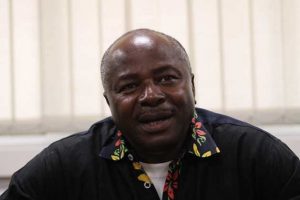Disaggregation statement
Civil Society submission for the 6th IAEG-SDG meeting in Bahrain Nov 13
Thank you for giving us the opportunity to present. Disaggregation of data is a pertinent issue to stakeholders. Disaggregation is more than just a technical discussion. It goes to the heart of the human rights approach to achieve universality and leave no one behind.
The structural and systemic barriers and inequalities must be addressed in terms of collection of disaggregation of data. Disaggregation data can contribute and facilitate policy formulation and implementation and budget allocation. Disaggregated information on dimensions such as income, poverty, consumption, and expenditures all of which measured conceptually as household level, but actually should be measured at the individual level.
In addition, we will first address intersectionality, that has become popular in the literature on gender and patriarchy, we need statistics that are intersectional – that tell us, for example, what happens to a woman with a disability in a minority community who is the sole source of support for her family. This may bump up against the problem of anonymity and preserving privacy, especially in small samples, but we clearly need to know more than the marginal values for each of the possible disaggregations.
Data disaggregation should address primarily the most vulnerable population like the traditionally excluded communities like gender, caste, decent, persons with disabilities, and sexuality. Their intersectional characteristics should be inclusive in the data disaggregation methodologies adopted by the member states for realizing the true nature of sustainability of the development goals. More over the data collection of these should be uniform and constant rather than random and periodical. Which means yearly or bi yearly availability of the data rather than usually adopted 5 years (in some case 7-10 years) collection of data. Furthermore, the monitoring and review of the data should be focused in order to avoid data tampering for showcasing attractive results by the states.
Let me draw the attention to missing disaggregation criteria, which is the data disaggregation based on caste and descent (and work) based discrimination, which has not featured in the indicators for achieving SDG targets. With more than 300 million people worldwide facing such forms of exclusion, the indicators have failed to address the true nature of vulnerabilities and exclusion through SDGs. These communities are faces intergenerational discrimination and bonded exclusion from socio-economic, political and legal mechanisms. Thus, stalling them in poverty and associated vulnerabilities. Like many other constituencies, their intersectional groups face further discrimination for example Dalit women, Romani Women, and Indigenous women with disabilities. The OHCHR Guidance tool for the elimination of Discrimination based on work and descent (DWD) have recommended states towards collecting the disaggregated data on DWD and with its intersectionalities with gender, disability, sexualities, age, religion, region, and the rural and urban divide.
Let me turn to another concern. While disaggregation by age is addressed by the IAEG-SDGs, there is not a consistent application of age disaggregation across the life course. Therefore, in its work going forward, we urge the IAEG-SDGs to consider standards for age disaggregation and reject a blanket cohort of 50, 60 or 65+ to measure outcomes for older persons. Age disaggregation for adults should, at a minimum, be in 5-year cohorts across the life course.
This has been recognized by the UK, and consequently, they will propose the establishment of a City Group on Ageing and Age Disaggregated Data at the next session of the UN Statistical Commission. If accepted, we urge the IAEG to engage constructively with this group which can inform and complement the workstream on disaggregation.
Disaggregation by disability. We would like to welcome that the IAEG-SDGs proposes the Washington Groups Short Set of Questions and UNICEF Washington Group module on Child Functioning as standard for monitoring of the SDGs. These are appropriate and broadly tested methodologies in place to disaggregate SDG indicators by disability. However, we are concerned on that the document on the overview of standards for data disaggregation issued by the IAEG-SDGs disaggregation work stream references in disability disaggregation the International Classification of Functioning (ICF), Disability and Health as well the International Classification of Diseases. The ICF is a classification and not a statistical standard, therefore we strongly request the deletion of the reference to the ICF as a global standard and only leave the Washington Group Short Set of Questions and the Washington Group/UNICEF module for disaggregation in the case of children with disabilities.
While we have listed many requests, we would like to reassure you and offer the collaboration of stakeholders who are ready to work with the IAEG-SDGs disaggregation workstream. We recognize that the complexities and difficulties that the IAEG-SDGs is encountering, but we see this as a matter of priority as the 2030 Agenda will not be able to be achieved without full disaggregation of data and leaving no one behind. Stop caste based discrimination
Deepak Nikarthil, Ph.D
Coordinator
Asia Dalit Rights Forum
Contact:- +91 9911288519
Website: http://asiadalitrightsforum.org/




